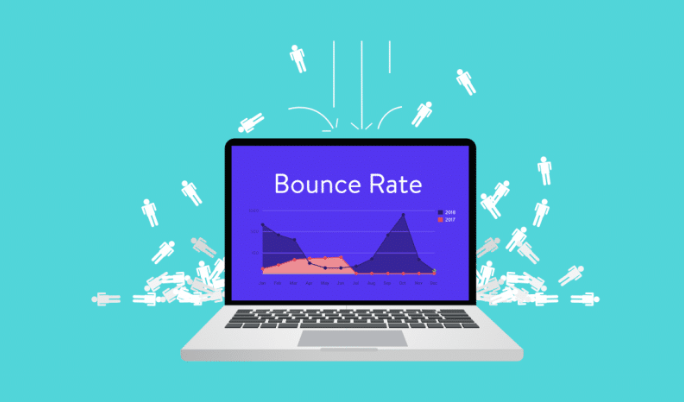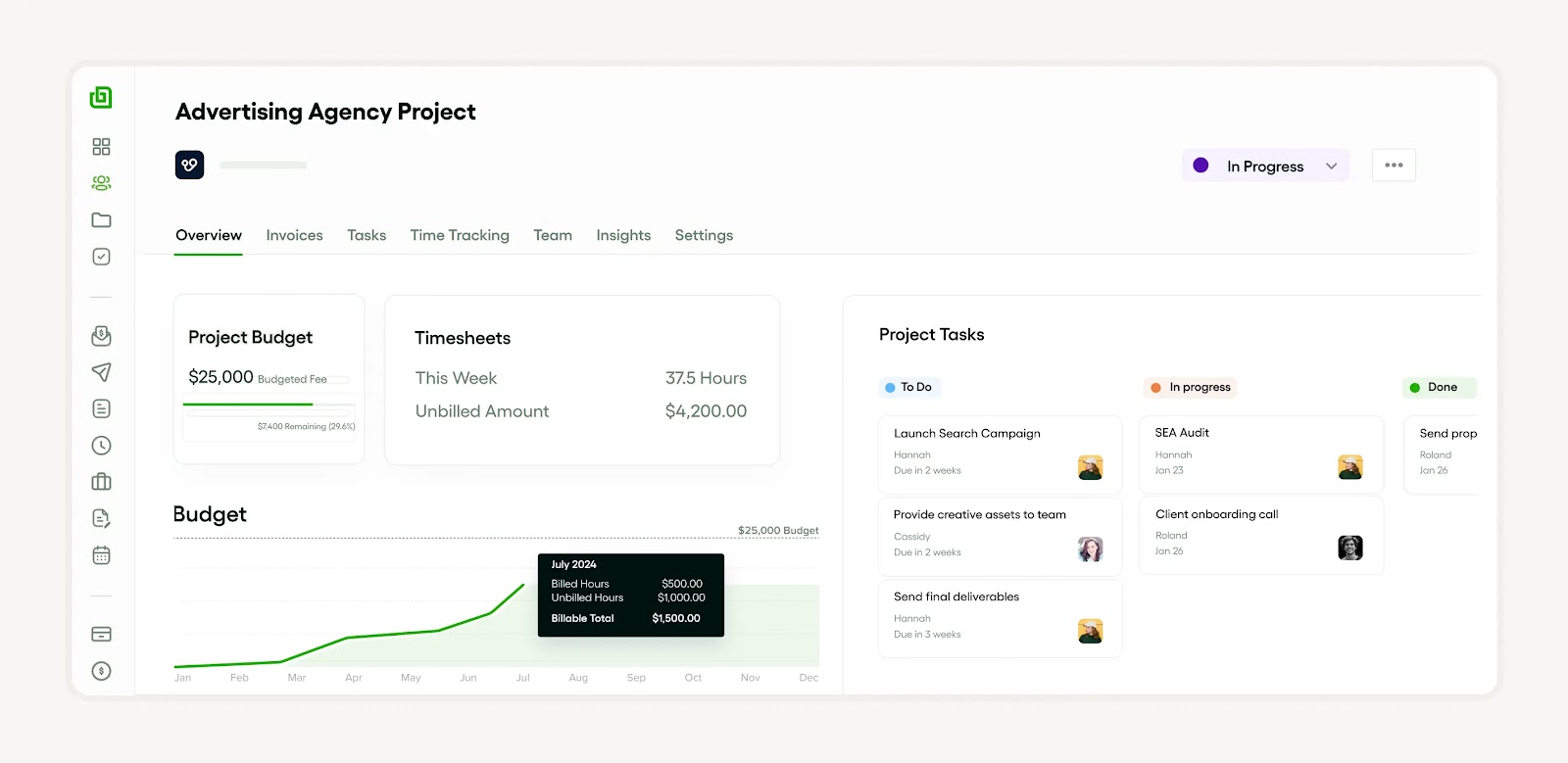By 2026, there will be several content marketing KPIs, which are relevant to assess the efficacy of your marketing plan. Some of these are the elements of content marketing engagement, content marketing conversion, and content marketing return on investment. These important metrics should constitute the core of any genuine content marketing agenda. Engagement KPIs in content marketing relate broadly to the level of audience engagement with the content. On the other hand conversion KPIs indicate how well the content is driving viewers to perform particular actions. Lastly, knowledge of the content marketing ROI can assist in answering questions about whether spending on content marketing activities has a favorable outcome. When you correlate these KPIs with content marketing objectives, it can greatly optimize the effectiveness of your content marketing strategies.
Introduction to content marketing KPIs
It is imperative to note that Content Marketing KPIs are very important in measuring the effectiveness of the content marketing you are undertaking. They are already raw data by nature since they are constructed as an exact figure that reflects the results of your content marketing. KPIs can range from the basic to the advanced, depending on what the content marketer is looking to measure. These are engagement KPIs, conversion KPIs, and ROI KPIs, respectively. Measuring these KPIs allows the businesses that practice content marketing to fine-tune their approaches, adjusting their marketing campaigns for better click-through rates, sales, and content syndication networks. In addition, it also guarantees tasks relating to the content calendar are relevant to the bigger picture of the content strategy. This improves performance indicators of their content marketing initiatives.
Understanding the importance of KPIs in content marketing
KPIs (Key Performance Indicators) remain vital milestones in a content marketing plan. It helps measure and assess the effectiveness of your content marketing strategies in relation to the set content marketing objectives. Effectiveness is about creating content and content consumption, dissemination and conversion effective for the intended ROI. It can be said that key performance indicators for content marketing cannot be overestimated. They offer insights into the effectiveness of the content of the content distribution channels. This information is very useful in decision making especially when it comes to mapping out the content calendar work plans.
How KPIs help in measuring content marketing success
While using content marketing it becomes crucial to understand the performance so that one can tell whether the content marketing strategies that are used are proper or not. They help marketers coordinate the content marketing strategy with business goals and objectives by tracking the progress made towards the achievement. This measurable information is especially useful for planning, budgeting and decision making for future content marketing campaigns. In addition, with content marketing engagement KPIs, content marketing conversion KPIs, and content marketing ROI, marketers can ascertain:
- The level of audience engagement with content
- The rate of conversion
- The returns on investment
They also help to explain how effective the content distribution channels are. The improvement of these performance indicators contributes to the effectiveness of the marketing campaigns and makes the content marketing strategy successful.
Key content marketing KPIs to monitor
Key Performance Indicators (KPIs) must be routinely tracked to determine the success of the content marketing strategies that have been implemented. They are:
- Content marketing engagement KPIs,
- Content marketing conversion KPIs
- Content marketing ROI.
These metrics help you better understand how your content works, how the audience interacts with it, and how effective your content marketing strategy is.

Measuring and monitoring these KPIs is a crucial aspect of your content strategy in the various channels you use for content distribution. This helps you to adjust the timing of your marketing campaigns, as well as tasks on your content calendar to meet the content marketing objectives. One thing to remember is that incorporating performance metrics such as these will enhance your overall data-informed decision-making and will lead to a greater outcome for your content marketing initiatives.
Website traffic: A primary indicator of content reach
This is because website traffic is the leading means of measuring the extent of the reach of a brand’s content marketing strategy. Heavy traffic means a successful approach, which contributes to content marketing outcomes and KPIs. Moreover, it indicates how efficiently the content distribution channels employed are. On the other hand, low traffic can be suspected to mean that it is high time to consider the content strategy and take a second look at the content marketing objectives.

Changes in content calendar tasks or respective marketing activities may effectively increase the number of visitors. Therefore, improving content marketing conversion Key Performance Indicators and Content Marketing Return on Investment. Hence, monitoring web traffic data can greatly assist in strengthening content marketing engagement KPIs and improving content metrics.
Time spent on page: Gauging user engagement
Another important indicator is the time spent on a page, which determines the effectiveness of content marketing efforts. It helps in understanding how users interact with your content and how much they consider it valuable. This metric can be used to guide your content marketing strategy about how to better optimize your content to improve the audience stay duration and perhaps improve upon your content marketing engagement KPIs.

Knowing how long users consume your content can help you determine the effectiveness of your content marketing strategies and reach the goals of content marketing. The outcome of these assessments promotes better marketing campaigns and thus improves content marketing performance and the overall content marketing ROI.
Bounce rate: Understanding user behavior
In the context of the content marketing strategy, metrics of user behavior like bounce rate are critical for the definition of content marketing. One of the key measures of content performance, bounce rate shows the number of visitors who leave the site after visiting only one page. It affects content marketing conversion KPIs. Therefore, it affects the content marketing ROI. A low bounce rate is an indication of successful content engagement in terms of content distribution and content calendar tasks.

Nonetheless, a high bounce rate indicates that it is time to rethink your content strategy, and maybe even your entire marketing campaigns, for your content marketing objectives.
Conversion rate: Measuring the effectiveness of content
Mainly, conversion rate plays a critical role as a key performance indicator helping to evaluate the effectiveness of content marketing strategies and improve overall performance. This measurement means comparing the number of visitors to the number of users who take the preferred action – an important metric for determining the success of content marketing. It helps businesses to adjust their content marketing strategy to content consumption and achieve their objectives. Content marketing conversion KPIs help in managing the content marketing journey and can enhance the insights of the utilized content marketing campaigns. With this awareness, businesses can either change distribution networks or content calendar tasks to optimize content engagement. Thus, monitoring these conversion rates remains extremely important for every content marketing campaign and its percentages lead to a better content marketing ROI.
Social Shares: Evaluating social media impact
Measuring social media leverage is very critical when developing and implementing content marketing strategies since it helps a business determine the performance of its content marketing. This analysis might help to have a clear picture of content marketing by keeping the metrics to showcase the rate of content sharing.
There are quite a few key performance indicators (KPIs) to keep an eye on. These could include:
- Content marketing engagement KPIs
- Content marketing conversion KPIs
- Content marketing ROI
By carefully monitoring these metrics, you can adjust your content calendar tasks and strategies. Thus, leading to more successful marketing campaigns.
SEO rankings: Tracking organic visibility
Enhancing your content marketing strategy calls for the monitoring of SEO rankings. The tracking of organic visibility by utilization of performance metrics such as content engagement and content marketing conversion KPIs is essential. This assists in refining your strategies in content marketing so that they can be aligned with your objectives in this field. Additionally, optimizing content distribution channels involves keeping up with your responsibilities concerning the campaigns and calendars of content. Regularly reviewing how well you perform using available information guarantees you the returns on investment (ROI) with respect to your overall objectives in promoting content efficiency or effectiveness.
Using Google Analytics for monitoring KPIs
When discussing content marketing strategies, understanding various KPIs is crucial for success. One useful resource is a deep dive into Paid Search KPIs, beneficial for all marketers. Incorporating these indicators can signficantly improve your campaign's effectiveness.
Google Analytics is an innovative solution to track your Key Performance Indicators (KPIs) in content marketing strategy. This is a powerful tool that can measure and produce data on performance indicators that you wish to monitor on your site regarding content marketing. Moreover, it also lets you quantify the performance of your content marketing strategy in terms of content engagement, distribution, and content marketing conversion KPIs. In its simplified form, this tool should help you achieve your content marketing objectives to a large extent. It assists you in making necessary changes in the content strategy and the content calendar tasks through the provision of the important Market Intelligence on your marketing campaigns. Thereby improving content marketing ROI.
Setting up google analytics for content marketing KPIs
Many businesses count on Google Analytics to help them deal with content marketing management effectively. That way, you can track numerous aspects of your content marketing success rates. Some of these are the content marketing engagement KPIs like the bounces, number of page visits, average session, and other engagement KPIs including goal completion rates, conversion rates, etc. In other words, the said performance metrics give you a good understanding of the utility of your content marketing as well as guidance in optimizing your content strategy. This knowledge of how consumers generate content with their viewing habits can add value to your content marketing campaigns and content distribution channels.
Interpreting data from Google Analytics
Google Analytics is among the many tools that can be used to track the effectiveness of content marketing. It gives you the bigger picture of your marketing campaigns through channel performance of your content and the engagement of the same. This can be beneficial in providing valuable information to fine-tune your content marketing efforts as you move toward achieving your content marketing objectives. Additional information from Google Analytics can also be used to help in creating high-quality content marketing conversion KPIs. By monitoring such steps, you can tell the efficacy of your content marketing initiatives, allocate work for your content calendar, and increase the efficacy of your content marketing.
Using SEMrush for tracking SEO rankings
Essentially, when it comes to tracking SEO rankings, utilizing SEMrush can significantly enhance your content marketing strategy. Using this powerful set of tools, you are always able to check your content marketing metrics, measure engagement, and match your content with your content marketing objectives. It offers valuable information on content consumption and content promotion, as well as content marketing interactions and interactions KPIs. This assists in the assessment of content marketing campaigns, the development of an effective strategy for content marketing campaigns. At the same time, SEMrush can also help to evaluate content marketing ROI through tracking content marketing conversion KPI.
How SEMrush helps in monitoring SEO KPIs
Generally, SEMrush is an essential software that helps in tracking SEO metrics which in turn greatly improves content marketing operations. This tool helps to monitor the effectiveness of your content marketing by offering breakdowns of content interactions, analytics of your content, and insights into the distribution of your content strategy. This is useful in refining your content marketing strategies and therefore amplifying your content marketing value. Additionally, SEO strategies may be tracked and monitored while using SEMrush and the tool can be synched with the content calendar and the necessary content marketing tasks and goals. It also offers statistics on the performance of content marketing conversion KPIs and then helps to guide and evolve your content strategy. Altogether, these tools contribute toward SEMrush being beneficial in providing a general outlook of the engagement KPIs relevant to your content marketing.
Using Hootsuite for social media KPIs
With trends, monitoring, composing, and analytics features, Hootsuite enables you to manage your content marketing successfully. This not only enables you to plan and manage your content across various channels and times but also affords you the means to gauge your overall content marketing effectiveness. Using Hootsuite’s performance metrics is also important as it shows the amount of content engagement and content conversion KPI. In addition, it assists you in managing the ROI of content marketing. Therefore, the role of Hootsuite within the context of content marketing cannot be overemphasized because it can greatly enhance your strategies and get you closer to your ambitions for content marketing.
Monitoring social shares and engagement with Hootsuite
Measuring social share and engagement is an important way of looking at the effectiveness of the content marketing approach. When using Hootsuite, you can create awareness of various kinds of content and the performance of content in different content distribution channels. That's a good way to justify your marketing campaigns towards your content marketing agenda. This tool gives you other performance indicators such as content marketing engagement KPI, content marketing conversion KPI, and content marketing ROI. With the collected data, you possibly have to fill-in the gaps in the content calendar and improve your content marketing campaign. This tool will help you to have total control over your content strategies and make content marketing an easier process to follow.
Improving content marketing KPIs
For a starter, enhancing the measures of your content marketing KPIs is important for content marketing performance assessment. Some sub-processes within the process of content marketing can be efficient content calendar tasks, diverse content distribution channels, and clear content marketing objectives. As you know, evaluation of performances is important in giving out an understanding of how to improve the marketing activities. To optimise content marketing ROI efforts should be made to improve content engagement and content marketing conversion factors. Continually check and tweak where necessary to ensure that your content marketing campaigns reflect the business goals and elicit users’ responses.
Strategies for increasing website traffic
When it comes to driving traffic to your website, having a proper marketing content plan is paramount. They should include, customizing content marketing strategies to its audience and periodically measuring content marketing against set objectives. About content marketing, creating an engaging content marketing campaign is important to drive high traffic to your website. Notably, tracking the engagement, conversion, and ROI markers of your content marketing efforts is crucial in fine-tuning your content approach. Another factor is also the effective usage of relevant content distribution channels. Last but not least, sticking with the content calendar tasks as well as paying attention to the need to enhance the performance of the content in terms of engagement is crucial.
Ways to boost conversion rate
Usually, to enhance your conversion rate it is important to strengthen the positions of the content marketing strategy. This includes being able to establish tangible content marketing objectives and ongoing optimization of the marketing endeavors.

When it comes to content marketing, you need to be exceedingly wise in your selection of distribution platforms. Please ensure your content calendar tasks are in synchrony with your overall plan when designing content engagement approaches for each platform. Measuring content marketing conversion KPIs and content marketing ROI assists in tracking the progress of the goals in the process to guide you. This is a data-driven process of pushing your content marketing towards an endless growth and better engagement.
Conclusion: The role of KPIs in content marketing success
In conclusion, KPIs play a significant role in driving content marketing success. From this, goals of content marketing can be set. Plus, measures of content marketing can be taken so that organizations can improve their content marketing. Measures like the content marketing engagement KPIs and the content marketing conversion KPIs make it possible for brands to assess the performance of their content. It gives them the ability to generate value. One cannot overemphasize the importance of measuring marketing communication to guarantee that campaigns are valuable to the business and its goals.







